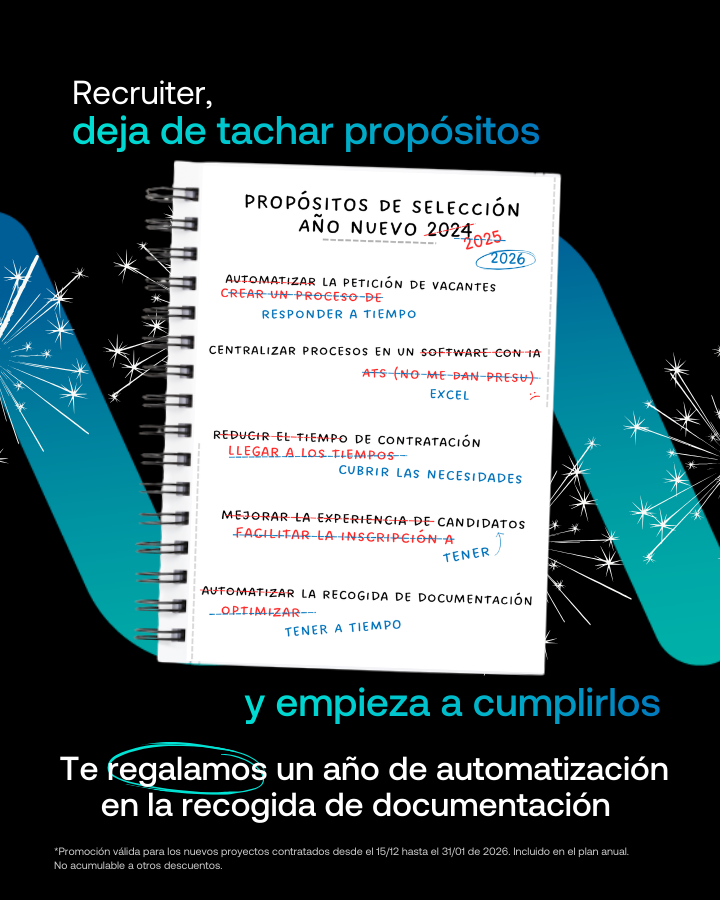Talent management in response to increased hiring during Black Friday in logistics sector

Black Friday is not merely a commercial phenomenon. . In HR, especially within the logistics sector, it's a tsunami of opportunities and challenges that arrive together, without warning.
Each year, as the final quarter approaches, warehouses begin to sense the arrival of peak season. Orders multiply but delivery times must remain tight to maintain customer experience. This is where the work of teams hired and trained within remarkably compressed timeframes becomes critical.
The reality is that Black Friday in the supply chain isn't simply an operational challenge—it's fundamentally a human challenge. And this is precisely where we, as HR professionals, fulfil our most important role.
The Increase in Hiring During Black Friday
According to data published by Royal Mail, the company alone hired 16,000 temporary workers to handle increased demand during the 2024 festive season. When you consider the broader sector, UK logistics companies typically hire an additional 50,000 workers during peak season. We're not discussing marginal figures—we're witnessing genuine transformations in team structures.
The demand spans multiple profiles: warehouse operators, expedition coordinators, last-mile delivery drivers, loading specialists. Each category faces its own pressures, each requires tailored solutions. The concept of working on Black Friday transforms into legitimate employment opportunity for thousands seeking supplementary income, yet simultaneously presents a coordination challenge that can prove overwhelming without proper anticipation.
This magnitude is no accident. Warehouses that typically process 10,000 packages daily may find themselves handling 30,000 or more. Distribution networks designed for steady flow must suddenly accommodate exponential surges. This requires human capacity—substantial, coordinated, and reliable human capacity deployed strategically across the network.
Challenges in Talent Management for Logistics: How to Address Them from Your HR Department
Strategic planning becomes your most valuable ally precisely here. We cannot wait until October concludes to contemplate November's demands. The challenges facing talent management during peak seasons demand anticipation that simply cannot tolerate improvisation.
This exponential surge in demand positions us before three interconnected challenges: first, attracting and selecting qualified candidates within severely compressed timeframes; second, training them adequately in safety protocols and operational procedures within days rather than weeks; and third, maintaining their commitment and motivation when workload intensifies and contracts remain temporary.
Each element functions like a domino in a carefully balanced sequence. Failure in recruitment cascades into failure in retention. Inadequate training manifests as accidents and reduced efficiency. Insufficient attention to motivation demoralizes teams under pressure. Success requires harmony across all three dimensions.
Attracting Qualified Profiles
Finding appropriate candidates within tight temporal constraints presents a genuinely complex puzzle. We simply cannot afford conventional selection processes that stretch across weeks or months. This is where technology becomes not merely useful but genuinely transformative.
Agile selection processes, supported by intelligent evaluation systems, permit you to filter candidates effectively from the opening moments. Imagine having a sophisticated filter operating continuously, identifying promising profiles while you attend to other strategic concerns.
Implementing multi-level assessment during your Black Friday hiring processes offers particular power. This methodology enables you to design customized evaluation sequences for each logistics role: automated screening for warehouse operators, technical assessments for drivers, aptitude evaluations for coordinators. AI-powered analysis examines behaviors and competencies objectively, compressing the timeline from weeks to days—sometimes even hours—between CV reception and hiring decision.
What previously demanded dozens of manual review hours now becomes intelligently automated. Beyond efficiency, these processes generate comparable data that transforms decision-making from intuition-based to evidence-based. Instead of relying on impressions, you possess measurable insights about each candidate's capabilities.
Training Within a Compressed Timeframe
Once candidates transition to hired staff, your onboarding window narrows dramatically. New team members require knowledge of safety protocols, operational systems, cargo handling procedures. Everything must transfer rapidly without compromising quality.
In these circumstances, having automated and agile onboarding is fundamental for ensuring comfortable and efficient incorporation of new employees into their roles. Transmitting operational knowledge during those critical first days proves absolutely essential. Structure intensive yet accessible training sessions—leverage video demonstrations, practical walkthroughs, and mentorship models where experienced employees guide newcomers. Communication clarity transforms into your most valuable investment.
Motivation and Commitment of Temporary Teams
This dimension frequently receives insufficient attention. Temporary workers can easily internalize the sensation of being "disposable components" within a larger machine. When this occurs, their engagement plummets accordingly.
The challenge is authentic: how do you maintain motivation among team members knowing their contracts conclude within six weeks? The answer crystallizes around three foundational pillars. First, genuine recognition: celebrate achievements, make contributions visible, ensure they never feel invisible or insignificant. Second, positive workplace culture: dignified working conditions, adequate rest periods, transparent communication. Third, tangible incentives: performance bonuses, team engagement activities, small recognitions demonstrating that their effort genuinely matters.
Remember this fundamental truth: these workers become your brand ambassadors. The experience they have during Black Friday determines whether they'll return, whether they'll recommend you to others, or whether they'll carry negative narratives into the broader market.
Advantages That Black Friday Offers to Your HR Department
Here arrives the truly compelling dimension: Black Friday functions not only as a challenge but as an unprecedented opportunity to strengthen your HR capabilities. This pressure transforms into a catalyst for systematic improvement.
Expanding Your Talent Pool
During Black Friday, literally hundreds or thousands of candidates flow through your selection processes. Many possess genuine potential but simply don't align with current campaign needs or available positions at this specific moment.
This is where multi-level assessment becomes invaluable. By evaluating this volume of candidates against structured criteria, you construct a remarkably valuable database of objectively assessed profiles. You identify individuals with potential for permanent roles, supervisory positions, even management roles. That candidate who didn't fit the warehouse operator position but demonstrated leadership aptitudes can be contacted for future opportunities.
Essentially, Black Friday becomes a significant opportunity to discover talent that conventional recruiting would never surface.
Optimizing Onboarding and Training Processes
Each Black Friday campaign generates invaluable learning. Processes that functioned brilliantly last year can be refined. Training sequences that created confusion can be redesigned. Onboarding timelines can be optimized.
The critical element involves systematically documenting what worked effectively and what didn't. Which training modules proved most effective? At what point did new employees achieve maximum efficiency? What errors repeated consistently? By embracing this philosophy of continuous improvement, each Black Friday becomes an optimization sprint that benefits all subsequent operations.
As demonstrated by the Seur success story, a well-coordinated strategy spanning recruitment, assessment, and training can dramatically increase operational efficiency even during periods of maximum demand.
Your Next Strategic Move
Talent management during Black Friday demands sophistication, we understand. Yet it simultaneously represents an unparalleled opportunity to demonstrate HR's strategic value within your organisation. This isn't simply an operational bottleneck—it's the arena where campaign success or failure genuinely occurs.
If you want to discover how technologies like multi-level assessment can transform your selection processes, compress decision timelines, and identify talent with greater intelligence during Black Friday, we invite you to explore our functionalities.
Request a demonstration today and discover how other logistics companies are navigating this challenge with strategic thinking, intelligent technology, and people-centered approaches. Because ultimately, that's what truly determines outcomes: people thoughtfully selected, thoroughly trained, and genuinely motivated.
For deeper exploration of candidate assessment methodologies, we recommend our comprehensive guide to candidate assessment for hiring process excellence.
Black Friday returns each year. The question that matters: will your team arrive prepared?
.jpg)
Fulfill your selection purposes
Recruiter, fulfill your recruitment purposes in 2026 with the help of Velora. And as a gift, a free year on automatic document request.

Related articles
More articles to inspire your HR strategy









